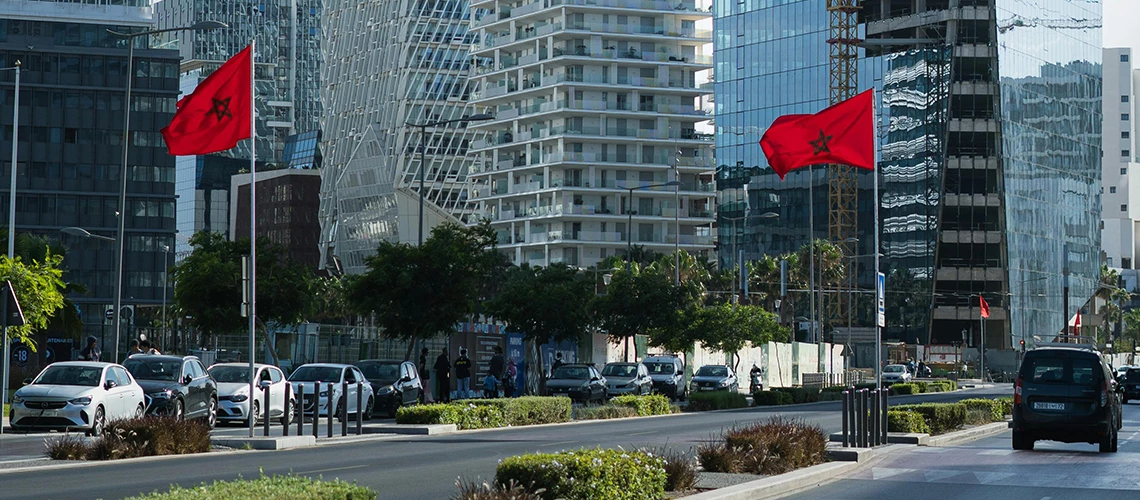Morocco has been steadily overhauling its capital markets in recent years, pursuing a broad transformation aimed at modernizing its financial infrastructure, diversifying investment channels, and laying the groundwork for sustainable, long-term growth. Backed by the World Bank Group’s J-CAP Sustainable Finance Facility and with support from the Swiss State Secretariat for Economic Affairs, this ambitious agenda is reshaping the country’s financial landscape.
At the heart of this strategy is Morocco’s aspiration to become a leading financial gateway to Africa. Casablanca Finance City stands as a symbol of this regional ambition, positioning the country as a credible investment hub capable of attracting international capital, financing major infrastructure projects, and supporting key sectors like tourism and job creation.
Despite these efforts, Moroccan businesses still rely heavily on traditional bank lending. As in many emerging markets, structural habits and limited access to alternative financing have slowed the rise of a truly dynamic capital market.
To address these challenges, Moroccan authorities have introduced sweeping reforms. The Casablanca Stock Exchange has revamped its infrastructure, introducing a centralized clearinghouse and working toward the launch of a derivatives market. A range of new financial instruments has been introduced, including real estate investment vehicles, Islamic bonds, green bonds, project bonds, and covered bonds. Crowdfunding platforms are starting to emerge, and synthetic securitization is being used as a risk management tool by financial institutions.
Two recent transactions highlight how these reforms are starting to bear fruit. The National Office for Electricity and Drinking Water successfully raised over $400 million through a pioneering infrastructure debt fund, backed by future receivables—a first for Morocco, made possible by a supportive legal framework. Meanwhile, updates to the regulations governing private equity funds have brought domestic legislation in line with global standards. This has already attracted interest from international players, with the International Finance Corporation (IFC), part of the World Bank Group, making its first direct investment in a Moroccan fund.
Even so, the uptake of new instruments remains uneven. Some, like private equity funds and real estate investment funds, are gaining momentum. Others, such as project bonds and debt funds, have yet to find their footing. Several structural barriers still limit broader participation in the capital markets.
Many small and medium-sized enterprises, often poorly structured and lacking financial maturity, struggle with governance transparency and are reluctant to open up to outside investors. To help them access capital markets, tailored investment readiness programs focused on transparency, corporate governance, and management are becoming increasingly essential.
Another key hurdle lies in building a solid pipeline of bankable projects. While the legal framework for public-private partnerships is in place, the actual number of investment-ready projects remains limited. Greater coordination between stakeholders, enhanced technical expertise, and the creation of a project preparation fund could help drive forward initiatives in crucial sectors such as transport, energy, and sustainable infrastructure.
On the investor side, the market still needs to broaden its base. Institutional investors often find a lack of attractive options, while wealthy individuals and family offices remain active but insufficient to drive market expansion. To tap into public savings and channel them into productive sectors, regulatory harmonization, a wider array of financial products, and improved financial literacy are key areas for development.
The absence of a local credit rating agency also poses a challenge. Establishing such an institution would boost transparency, enhance investor confidence, and deepen the market by improving capital allocation and pricing.
Amid this ongoing transformation, the Moroccan Private Equity Investors Association continues to champion private equity and venture capital as essential tools for financing unlisted companies and supporting the real economy. Their approach is grounded in long-term investment, aligned with global best practices.
A growing number of licensed players are shaping Morocco’s evolving investment ecosystem. These include AlphaVest Capital, APM Capital Morocco, Groupe A.P. Møller Capital Morocco, Atlamed Capital, Atlas Capital Private Equity, Attijari Capital Management, Azur Innovation Management, BMCE Capital Investments, Capital Trust Invest, CDG Invest Management, CDG Invest, Growth EmergingTech Ventures, IMG Capital, Mediterrania Capital Partners Gestion, PE Partners, Private Equity Initiatives (AfricInvest Group), Red Med Private Equity, Upline Group Investments, and Valoris Capital.
Through this steady push for reform and innovation, Morocco is carving out a more open, efficient, and responsive capital market—one better suited to the country’s evolving economic needs. Long-term success will depend on continued collaboration between public and private actors, and the ability to turn policy ambition into concrete, inclusive growth.
